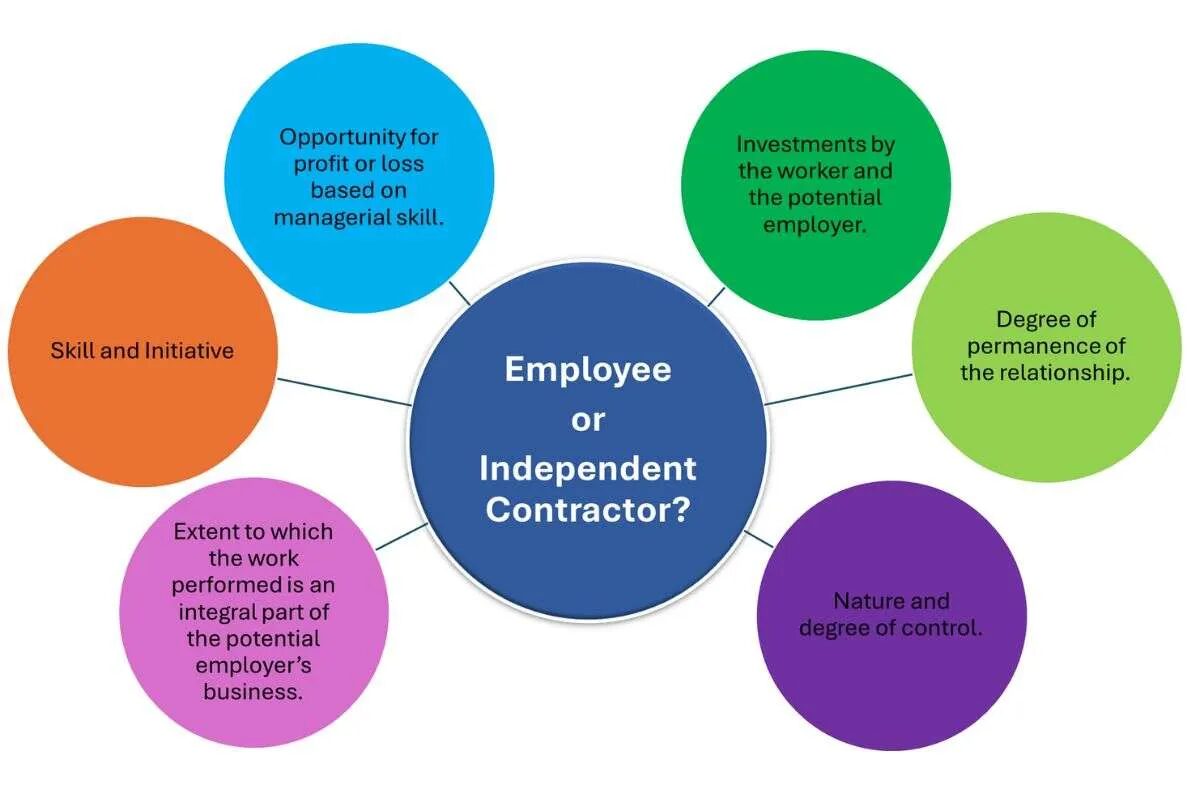by Elizabeth E. Hogue, Esq.
Employee or Independent Contractor
DOL Won't Enforce Determination Standards
The U.S. Department of Labor (DOL) has announced that it will no longer enforce a rule published in 2024 that have been used to decide whether workers are employees or independent contractors. This means that while the DOL develops new standards it will no longer apply the analysis in the 2024 rule when investigating potential misclassification of workers as independent contractors instead of employees.
This decision is due, in part, to legal challenges to the rule. The classification of workers as either employees or independent contractors has been an important issue for providers of services in patients’/clients’ homes, especially for private duty or homecare providers.
Totality of Circumstances Rule
The rule that the DOL finalized in 2024 focused on the “totality of the circumstances” to determine whether workers were independent contractors or employees under the Fair Labor Standards Act. It considered factors like:
Opportunity for profit or loss based on skill level
Whether workers can:
- Negotiate charges for services provided
- Accept or decline work
- Choose the order or time when services are performed
- Engage in marketing or advertising activities
- Make decisions about hiring others, purchasing materials and/or renting space
Investment by workers vs employers
- Workers’ investments do not need to equal employer investments
- Workers’ investments should support an independent business


Degree of permanence
- If work is temporary or project-based, worker is likely a contractor
- If work is indefinite or continuous, worker is likely an employee
Nature and degree of control
- If the employer has more control, workers are likely employees
- Contractors have more control over scheduling
- Contractors have less direct supervison
- Contractors can work for multiple employers
Degree to which role is essential
- Integral roles are filled by employees
- These roles are critical, necessary, or central to employer’s principal business
- Integral roles often manage other employees
Skill and Initiative
- General skill and labor positions are usually filled by employees
- The more specialized the skills, the more likely the worker can be an independent contractor

Trouble for Employers
This rule certainly made it harder to classify workers as independent contractors and was difficult to apply.
Although the DOL says it will stop enforcement action, providers must be aware that the rule is still in effect. Providers should remain cautious about how workers are classified. Providers must also continue to comply with applicable state and local laws.
Final Thoughts
Classification of employees will continue to be a balancing process. Opinions, especially between business owners and regulators, will undoubtedly continue to differ. In any event, this classification of workers remains an important issue for providers of services in patients’ homes.
# # #


Elizabeth Hogue is an attorney in private practice with extensive experience in health care. She represents clients across the U.S., including professional associations, managed care providers, hospitals, long-term care facilities, home health agencies, durable medical equipment companies, and hospices.
©2025 Elizabeth E. Hogue, Esq. All rights reserved.
No portion of this material may be reproduced in any form without the advance written permission of the author.
©2025 by The Rowan Report, Peoria, AZ. All rights reserved. This article originally appeared in The Rowan Report. One copy may be printed for personal use: further reproduction by permission only. editor@therowanreport.com



